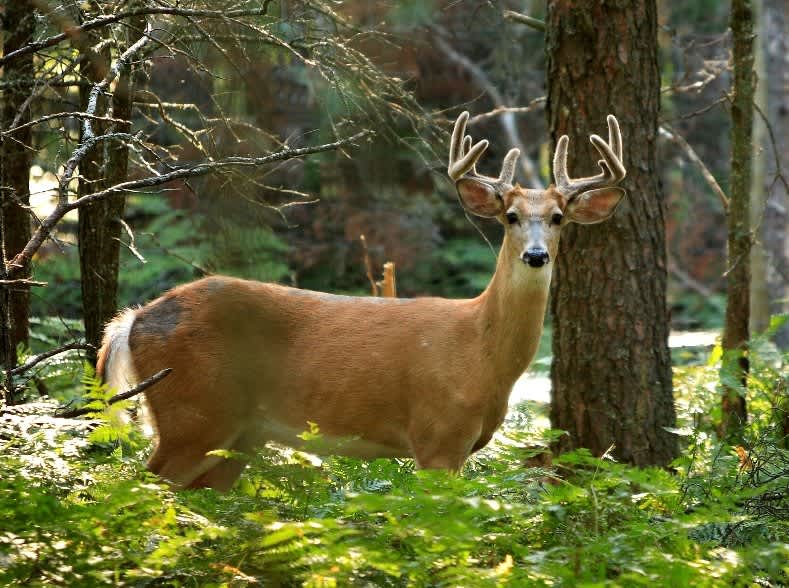Michigan Hunters Help Feed the Hungry
Derrek Sigler 11.11.15

As hunters, we all know the feeling of satisfaction that comes from providing healthy game meat for you and your family. For many of us, it is one of the many reasons we hunt and part of the tradition. As a community, hunters are pretty generous, too. How often has a friend shared a few venison steaks with you, or given you some extra fish from a recent trip? That generous nature has helped propel Sportsmen Against Hunger, a volunteer-based program that aims to get excess game meat onto the plates of the less fortunate.
Started in 1991, Michigan Sportsmen Against Hunger (MSAH) has been putting hunters together with processors and food banks to get game meat onto the plates of the hungry. Hunters can donate an entire deer, a select amount of venison, or money to the program.
One of the only requirements is that venison has to go through a licenses processor, said Neal Easterbrook, the current vice-president of MSAH. A list of participating processors can be found here.
You may have already donated to help MSAH. Part of the license system in the state of Michigan asks for donations. Recent changes have brought a huge increase in the funding raised with that system too, said Ray Rustem, Youth Council Advisor for the state’s Department of Natural Resources (DNR). Rustem also coordinates the MSAH program for the DNR. In the infancy of the program, donations averaged $21,000 annually. With a change in the structure in 2013, those donations jumped dramatically to over $75,000 in 2015 to date. Those donations are a vital part of the program, as MSAH pays participating processors $1 per pound for their time and work in preparing the meat for the food pantries.
“The state averages 25,000 to 30,000 pounds of donated meat each season,” Rustem said. “In those first years, we just didn’t have enough funds to process all of the meat that could have potentially been donated.”
Food banks love the program, often contacting the DNR to ask about participating. Rustem said that pantries interested should, like the hunters, contact the processors directly.
“Meat is one of the most desired products that charities can get,” Easterbrook said. “In some cases charity spent as much as 80 percent of their food budget on meat. By hunters donating their venison, it frees up funds that can be used in other areas, such as housing, rehab, and education. So our program does more than just feeding people, it opens up other opportunities for Michigan’s needy.”
The DNR also sees benefit from the program, Rustem said. Quite often communities that have excessive deer populations that need to be culled, resulting in an abundance of meat that needs to be put to good use. The MSAH program network puts the DNR in contact with areas of need and the meat gets into the system.
Another element to the program is that it encourages hunters to hunt. There are many hunters who look forward all season long to opening day, only to harvest a deer that morning and then feel they are done because they can’t use any more meat themselves, Rustem said. This program promotes hunting and hunters need to know that nothing goes to waste.
“Early settlers often had a community hunter that would supply fresh meat to the community,” Rustem said. “This program continues the tradition of the hunter as a provider not only for his/her family, but the community as a whole. It is a great way to share the love of hunting with others.”
Recent issues with the overall deer herd have had minor impacts on donation amounts. This year, it remains to be seen whether there will be any difference due to the reduction of antlerless permits in the Upper Peninsula. Hunters aren’t required to provide any set amount of meat to the program to be able to participate, however. Past issues have not caused any decrease in available meat. The DNR is monitoring diseases this year very closely, but they don’t predict that there will be a significant impact.
For the future, the DNR is looking to expand the program with other ways to get processors involved. Currently, only those processors licensed through the Department of Agriculture can participate, Rustem said. With the program being an outstanding way to help people get a rich source of protein as well as save money for other programs, the MSAH organization and the DNR are working hard to expand it as much as possible and get more hunters involved with making a direct impact in the betterment of their communities and carry on the tradition of being a hunter.
For more information on Michigan hunting go to michigan.org. Click here to purchase a Michigan hunting license online.
This article was produced in partnership with Pure Michigan.

